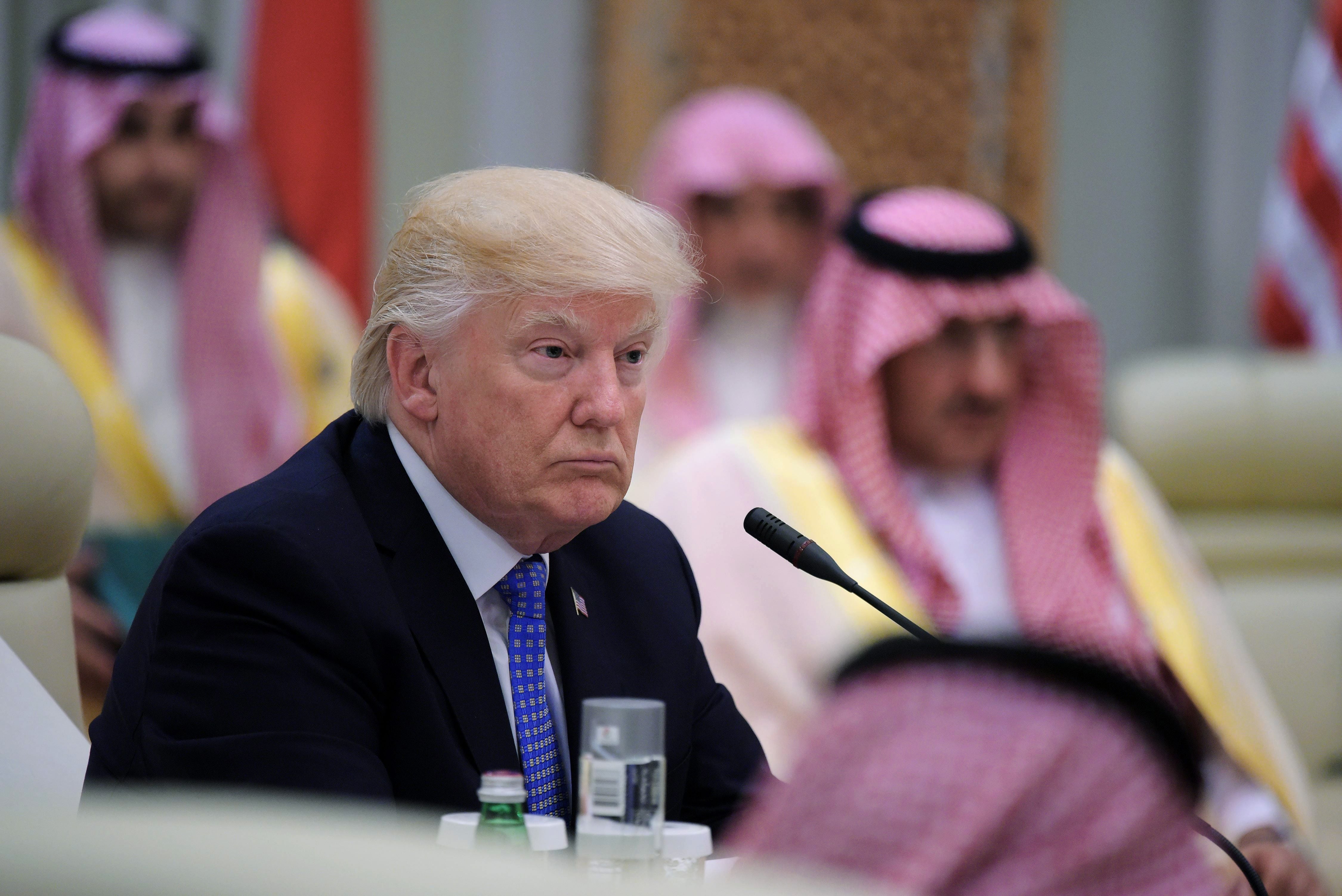WASHINGTON ― Senate Republicans were advising against immediate military action against Iran in response to an attack on Saudi Arabian oil facilities, calling for more analysis and discussion first.
“I think it’s appropriate that all of us get together and exchange ideas, respectfully, and come to a consensus―and that should be bipartisan,” said Senate Foreign Relations Committee Chairman Jim Risch, R-Idaho. “I can tell you I’m sure there will be differing views; there always are on matters like this with complex options.”
The comments came as lawmakers expected a classified briefing in the coming days, and as the Trump administration made available a classified briefing book, in the Senate’s security facility. House Speaker Nancy Pelosi, D-N.Y., has reportedly requested the administration provide the House with an all-members briefing.
The administration seemed to be trying to balance diplomacy with fresh talk of military action on Tuesday. Echoing President Trump’s warning from earlier in the week, Vice President Mike Pence said American forces were “locked and loaded” for war if needed. But he also noted that Trump said he doesn’t want war with Iran or anyone else.
“As the president said yesterday, it’s ‘certainly looking like’ Iran was behind these attacks,” Pence said. “And our intelligence community at this very hour is working diligently to review the evidence.”
Secretary of State Mike Pompeo was headed to Jiddah in Saudi Arabia to discuss possible responses to what U.S. officials believe was an attack coming from Iranian soil.
Pence met with Senate Republicans at their weekly caucus lunch Tuesday, but he did not say Iran was responsible for the attack, nor did he outline possible responses, according to Sen. Lindsey Graham, R-S.C. Pence did say that the goal was to “restore deterrence” toward Iran.
Graham, who is calling for a retaliatory strike against Iran, said Tehran had mistakenly discerned “weakness” in Trump’s cancellation of a strike after Iran shot down a U.S. drone in June.
“Iranians saw the president’s restraint as weakness and not as space for diplomacy. So clearly they got the wrong message that inaction on the drone event, I think, has reinforced the narrative that the administration, the Western world [and] the region really isn’t going to do much about provocations,” Graham told reporters.
Graham said the appropriate response would be to knock out an Iranian oil refinery, but he also suggested the administration build a regional coalition to explore its next move.
In the Democratic-controlled House, Foreign Affairs Committee Chairman Eliot Engel, D-N.Y., said the Constitution bars the president from launching a military action unless America is attacked first.
“The notion that the White House may be waiting for a foreign government to make a decision instead of adhering to the Constitution is outrageous,” Engel said in a statement. “The administration needs to brief Congress fully and if the President is considering military options, his first stop must be Capitol Hill, not Riyadh.”
Virginia Democratic Sen. Tim Kaine, a member of the Senate Foreign Relations and Armed Services committees, vowed Tuesday to force a vote blocking military action against Iran if Trump moves ahead without first obtaining the consent of Congress.
RELATED

Though several Senate Republicans―including Graham and Senate Intelligence Committee Chairman Richard Burr, R-N.C.―said they had no doubt Iran was involved in the attack, a number of their colleagues said it was premature to consider military action.
“I think you’re several steps ahead here, the intelligence assessments are still going on,” Sen. Susan Collins, R-Maine, and a member of the Senate Intelligence Committee, told reporters.
“Even though I’ve just read the classified report, there’s more intel to be gathered, more people to be consulted, and time is on our side,” said Sen. Kevin Cramer, R-N.D., a member of the Senate Armed Services Committee. “It’s appropriate for the president to exercise some restraint while allies in the neighborhood and elsewhere are consulted.”
Asked if military action would be warranted, Senate Committee on Homeland Security and Governmental Affairs Chairman Ron Johnson, R-Wis., said, “I think the intelligence was pretty convincing that it was Iran, but let’s verify that and then we can talk about [a possible military response].”
Sen. Jim Lankford, R-Okla., a senior member of the homeland security committee, ripped Iran’s “acts of terrorism” in the region, but said now was not time to go to war with Iran.
“Military is always last―always, always,” Lankford said. “Our beef is not with the people of Iran, but the regime of Iran. Why would we take aggressive action against people who mean us no harm.”
The Associated Press contributed to this report.
Joe Gould was the senior Pentagon reporter for Defense News, covering the intersection of national security policy, politics and the defense industry. He had previously served as Congress reporter.








